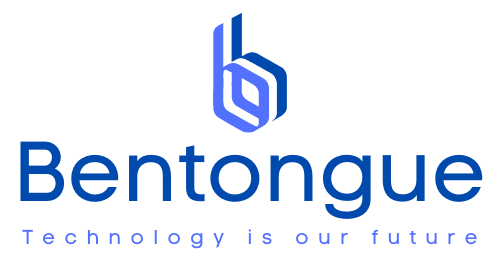Organising a sports event or tournament is a complex task that demands careful planning, coordination and attention to detail. From securing the right venue to ensuring participant safety, each element plays a vital role in creating a successful experience for everyone involved. This comprehensive guide provides essential advice to help you navigate the challenges of sports event organisation and deliver a memorable occasion for participants and spectators alike.
Preparation and planning
The foundation of any successful sports event lies in thorough preparation. Beginning your planning process 6-12 months in advance gives you adequate time to address all necessary details. A well-structured timeline helps track progress and ensures nothing is overlooked. Start by defining your event’s purpose, target audience, and scope – whether it’s a community football tournament or a multi-sport competition. Understanding these fundamental aspects will guide your subsequent decisions and help create a cohesive experience that meets the needs of your attendees. Many successful sports events, like those featured on https://www.clubdeportivosapporo.es//, demonstrate the importance of clear objectives from the outset.
Setting a realistic budget and timeline
Financial planning is crucial for event success. Create a comprehensive budget that accounts for venue costs, equipment, marketing, staff, insurance, and contingencies. Track all expenses methodically using budget tools to avoid overspending. Your timeline should include key milestones such as venue booking deadlines, registration periods, marketing campaigns, and equipment procurement. Allow buffer time for unexpected delays, especially for tasks involving third parties. Remember that some aspects, such as securing popular venues or obtaining certain permits, may require booking far in advance.
Securing appropriate venues and facilities
The right venue forms the backbone of your sports event. When selecting a location, consider factors beyond just the playing area. Ensure the venue has adequate facilities including changing rooms, toilets, first aid stations, and spectator areas. Verify that the venue meets all regulatory requirements for your specific sport and participant numbers. Accessibility is paramount – consider transportation links, parking capacity, and facilities for participants or spectators with disabilities. Thoroughly review venue agreements, understanding costs, policies, and what services are included. Establish a good relationship with venue management and ensure key contacts will be accessible during your event.
Marketing and promotion strategies
Effective promotion is essential to attract both participants and spectators to your event. A strategic marketing approach should begin early and utilise multiple channels to reach your target audience. Your promotional materials should clearly communicate the essential details: date, location, registration process, and what makes your event special. Consider creating a distinctive brand identity that helps your event stand out in a crowded calendar.
Leveraging social media and local channels
Social media platforms offer powerful tools for event promotion. Create engaging content that highlights the unique aspects of your tournament, perhaps showcasing previous successful events or profiling participating teams. Establish a consistent posting schedule and engage with your audience through comments and messages. Beyond digital marketing, engage with local community groups, sports clubs, and schools that might have interested participants. Local newspapers, radio stations, and community noticeboards can also help spread the word. Consider partnerships with local businesses for cross-promotion opportunities that benefit both parties.
Creating compelling event branding
Distinctive branding helps your event gain recognition and builds anticipation. Develop a memorable logo, consistent colour scheme, and messaging that reflects the spirit of your tournament. This branding should appear across all touchpoints – from social media profiles to event signage and participant materials. Consider creating branded merchandise such as t-shirts or water bottles that participants can purchase or receive as part of their registration package. Effective branding not only promotes the current event but lays groundwork for future iterations, building recognition and loyalty among your target audience.
Building your event team
The success of your sports event largely depends on the quality and organisation of your team. A well-structured team with clearly defined roles ensures smooth operations before, during, and after the event. Your core team might include an event manager, marketing coordinator, logistics manager, and finance officer – each responsible for specific aspects of the event. This leadership team should meet regularly to coordinate efforts and address emerging challenges.
Recruiting and managing volunteers
Volunteers are often the backbone of sports events, providing essential support across numerous areas. When recruiting volunteers, clearly communicate expectations regarding time commitment, responsibilities, and any benefits provided. Look beyond just filling positions – seek individuals with relevant skills or experience that match specific roles. Create a detailed volunteer programme with comprehensive information sheets and schedules. Assign volunteer coordinators who possess strong people skills to manage teams effectively. Avoid placing volunteers in potentially difficult situations by providing adequate training and support. During the event, ensure volunteers have breaks, refreshments, and appreciation for their efforts. Afterwards, gather feedback from your volunteer team to improve future events.
Defining clear roles and responsibilities
Ambiguity leads to confusion and inefficiency. Create detailed job descriptions for each role within your event team, whether paid staff or volunteers. These should outline specific responsibilities, reporting structures, and expected outcomes. Conduct briefing sessions before the event to ensure everyone understands their role and how it contributes to the overall success. Implement effective communication systems – whether radios, messaging apps, or regular check-ins – to maintain coordination throughout the event. Clear leadership is essential, with designated decision-makers for various aspects of the event who can resolve issues quickly when they arise.
Event logistics management
Logistics management involves coordinating numerous moving parts to ensure your event runs smoothly. This includes everything from equipment procurement to signage placement and supply management. Create comprehensive checklists for all necessary equipment and supplies, ensuring everything is tested before the event. Develop detailed schedules that account for setup time, event duration, and breakdown procedures. Signage plays a crucial role in guiding participants and spectators throughout your venue – plan placement carefully for maximum effectiveness.
Transportation and parking arrangements
Transportation logistics significantly impact the participant experience. Provide clear directions to your venue through your website and registration materials, including public transport options where available. Designate specific parking areas for different groups – participants, officials, spectators, and emergency vehicles. Consider arranging shuttle services from public transport hubs or remote parking areas if on-site parking is limited. If managing transportation services directly, ensure all drivers undergo appropriate background checks. For multi-day events, partnerships with local hotels or visitor bureaus can help participants with accommodation and transport needs.
Catering and refreshment planning
Food and drink provisions are essential for both participants and spectators. Determine whether you’ll manage catering in-house or work with external vendors. Consider the diverse needs of your audience, including dietary restrictions and preferences. For venues with existing concession stands, understand the arrangements regarding operation hours, revenue sharing, and product offerings. If allowing external food and drinks, establish clear policies and communicate these to attendees. For events spanning mealtimes, ensure adequate food options are available. Hydration stations are particularly important for sports events – plan their locations strategically around your venue.
Safety protocols and risk management
Participant and spectator safety must be your paramount concern when organising any sporting event. Comprehensive safety planning not only protects attendees but also safeguards your organisation from potential liability issues. Implement appropriate safety measures based on your specific sport, venue, and participant profile. This includes having qualified medical personnel on-site, establishing clear emergency procedures, and communicating safety protocols to all attendees.
Conducting thorough risk assessments
Risk assessment involves systematically identifying potential hazards and implementing measures to mitigate them. Evaluate your venue for safety concerns related to the playing area, spectator zones, and auxiliary spaces. Consider sport-specific risks and ensure appropriate protective measures are in place. Weather-related risks should be assessed based on your event’s location and timing. Document your risk assessment process using templates, which can also serve as evidence of due diligence for insurance purposes. Consult with venue management about their existing incident policies and integrate these into your planning. Review and update your risk assessment as event details evolve.
Implementing first aid and emergency procedures
Establish comprehensive emergency response procedures covering various scenarios from minor injuries to serious medical emergencies or venue evacuation. Ensure adequate first aid stations are positioned strategically throughout your venue, staffed by qualified personnel. Create clear communication channels for reporting and responding to incidents. Designate emergency vehicle access points and keep these clear at all times. Train all staff and volunteers on basic emergency procedures, including how to direct emergency services and assist with crowd management if necessary. Document all incidents thoroughly, however minor, for both immediate follow-up and future reference.
Rules and regulations enforcement
Clear rules and consistent enforcement are fundamental to fair competition. Establish comprehensive guidelines covering competition format, participant eligibility, and conduct expectations. These rules should align with governing body regulations for your sport while addressing the specific needs of your event. Display rules prominently at the venue and include them in participant information packs. Designate an experienced competition director to oversee rule implementation and address disputes.
Communicating guidelines to participants
Effective communication of rules begins during the registration process. Provide participants with comprehensive information packs that clearly outline all relevant guidelines, schedules, and expectations. Use multiple communication channels – email, website, social media, and on-site briefings – to ensure messages reach everyone. Create information sheets with key event details that participants can reference easily. For more complex competitions, consider holding pre-event briefings where participants can ask questions about rules and procedures. During the event, maintain a visible information booth where participants can seek clarification on guidelines.
Training officials and referees
Qualified officials are essential for maintaining competitive integrity. Recruit officials with appropriate certification and experience for your level of competition. Conduct briefing sessions before the event to ensure all officials understand the specific rules and procedures for your tournament. Establish clear channels for officials to communicate with event management regarding issues or disputes. Designate an official liaison who can address concerns and coordinate official activities throughout the event. Ensure officials have appropriate facilities, equipment, and breaks during the competition. Handle payments professionally, using standardised forms and processes to avoid confusion.
Contingency planning
Even with meticulous planning, unexpected situations inevitably arise. Robust contingency planning allows you to respond effectively to disruptions without compromising the overall event experience. Develop alternative plans for various scenarios, from minor logistical issues to major disruptions. Ensure your team understands these contingency measures and their roles in implementing them. Build flexibility into your schedule where possible to accommodate adjustments without causing cascading delays.
Preparing for weather disruptions
Weather presents one of the most common challenges for sports events, particularly those held outdoors. Research historical weather patterns for your chosen date and location to anticipate likely conditions. Develop specific contingency plans for various weather scenarios – extreme heat, rain, strong winds, or even snow depending on your location. These might include schedule adjustments, venue modifications, or in extreme cases, postponement procedures. Consider investing in weather insurance for additional financial protection. Communicate weather-related policies clearly to participants in advance, including thresholds for modifications or cancellations and how such decisions will be communicated.
Managing unexpected situations and delays
Beyond weather, numerous other situations can disrupt your event – equipment failures, staff absences, transportation issues, or medical emergencies. Create a decision-making framework that clarifies who has authority to implement contingency plans in various scenarios. Establish communication protocols for notifying participants and spectators about changes or delays. Include buffer time in your schedule to absorb minor delays without affecting the overall event timeline. Train your team to remain calm and solution-focused when facing unexpected challenges. After the event, document any situations that required contingency measures and evaluate the effectiveness of your response for future improvement.
Post-event evaluation
The conclusion of your event marks the beginning of an important learning process. Thorough post-event evaluation provides valuable insights for improving future events and demonstrating value to stakeholders. Schedule a comprehensive debrief with your core team to review all aspects of the event while details remain fresh. Address any outstanding administrative matters promptly, including final payments, equipment returns, and acknowledgements to participants and partners.
Gathering participant and spectator feedback
Systematic feedback collection provides crucial perspectives on your event’s strengths and weaknesses. Design surveys that balance comprehensiveness with completion time – focus on key aspects of the participant and spectator experience. Distribute these surveys promptly after the event when impressions remain vivid. Consider incentivising completion to increase response rates. Beyond formal surveys, monitor social media mentions and comments for additional insights. Create opportunities for face-to-face feedback through informal conversations or structured discussion groups. Compile all feedback into a comprehensive report that highlights patterns and significant observations.
Analysing event success metrics
Objective measurement complements subjective feedback in evaluating your event’s success. Review key performance indicators established during your planning process – these might include participant numbers, budget adherence, media coverage, or social media engagement. Compare actual outcomes against your initial goals and identify factors that contributed to successes or shortfalls. Analyse operational aspects such as registration efficiency, schedule adherence, and incident reports. Financial analysis should examine not just overall profit or loss but also the performance of individual budget categories. Document these findings thoroughly to inform future planning and demonstrate accountability to sponsors and stakeholders.
Recognition and appreciation
Acknowledging the contributions of everyone who helped make your event possible is both professionally appropriate and strategically wise. Genuine appreciation strengthens relationships and encourages future involvement. Develop a comprehensive recognition strategy that addresses different stakeholder groups – from core team members to occasional volunteers, from major sponsors to community partners.
Acknowledging volunteers and staff contributions
Personal recognition makes volunteers and staff feel valued for their efforts. Express appreciation during the event through simple gestures like providing quality refreshments, comfortable break areas, and verbal acknowledgment. Following the event, send personalised thank-you messages that specifically mention individual contributions rather than generic thanks. Consider hosting a post-event appreciation gathering where team members can celebrate their collective achievement. For recurring events, develop recognition programmes that acknowledge cumulative contributions over time. Document exceptional contributions for potential testimonials or recognition in future event materials.
Creating meaningful thank-you initiatives
Beyond simple expressions of gratitude, meaningful recognition initiatives strengthen relationships with key stakeholders. For sponsors and partners, provide detailed reports on event outcomes and the visibility their support received. Consider creating commemorative items that celebrate the event’s success – these might include photo collections, highlight videos, or branded keepsakes. Recognition should extend to participants as well, perhaps through certificates of participation or social media highlights showcasing memorable moments. For community partners who provided support, consider public acknowledgment through media releases or community publications. Thoughtful recognition not only concludes the current event positively but lays groundwork for future collaborations.







